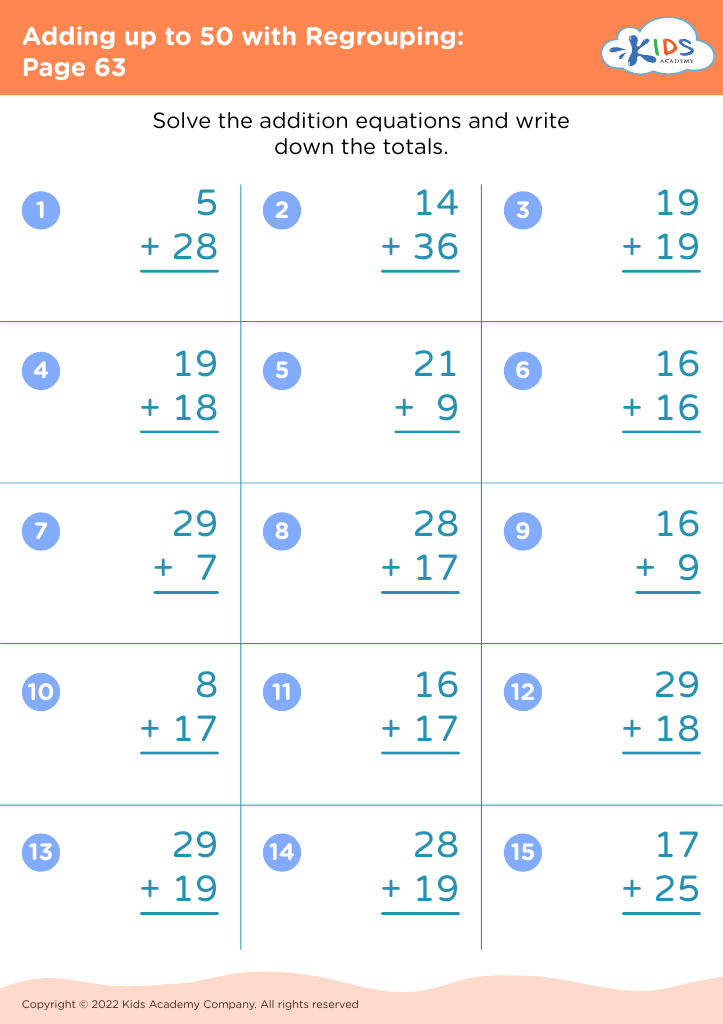Improve math skills Adding up to 50 Worksheets for Ages 7-8
4 filtered results
-
From - To
Boost your child's math skills with our engaging "Adding Up to 50 Worksheets" designed for ages 7-8. These worksheets focus on mastering addition through fun exercises that keep young learners motivated. With a variety of challenges that gradually increase in complexity, children will enhance their problem-solving abilities while building confidence in their math capabilities. Ideal for classroom or at-home practice, our printable resources make learning enjoyable and interactive. Whether your child is a beginner or looking to refine their skills, these worksheets offer a stepping stone to math proficiency. Start improving math skills today and watch them thrive!
Improving math skills, particularly adding up to 50, is crucial for children aged 7-8 as it lays the foundation for their future educational success and everyday problem-solving abilities. At this developmental stage, children are increasingly engaging with more complex mathematical concepts. Mastering addition within this range enhances their computational fluency, enabling them to tackle higher-level math efficiently.
Furthermore, strong math skills boost children's confidence and foster a positive attitude towards learning. As behavior towards math can affect their overall academic performance, a solid grasp of addition helps reduce frustration and anxiety, encouraging them to embrace challenges. Skills learned in this age group not only serve academic purposes but also translate into real-life situations—like budgeting their allowance or understanding time.
For parents and teachers, supporting the development of these skills can promote engagement and curiosity. Engaging children in various add-up-to-50 activities—like games, puzzles, and real-world applications—fuels their interest and makes learning dynamic. Ultimately, treating math mastery as a collaborative experience fosters a supportive environment that encourages children to grow, learn, and excel. Strong foundational math skills can lead to lifelong learning success and enhanced critical thinking, invaluable in our increasingly quantitative world.















